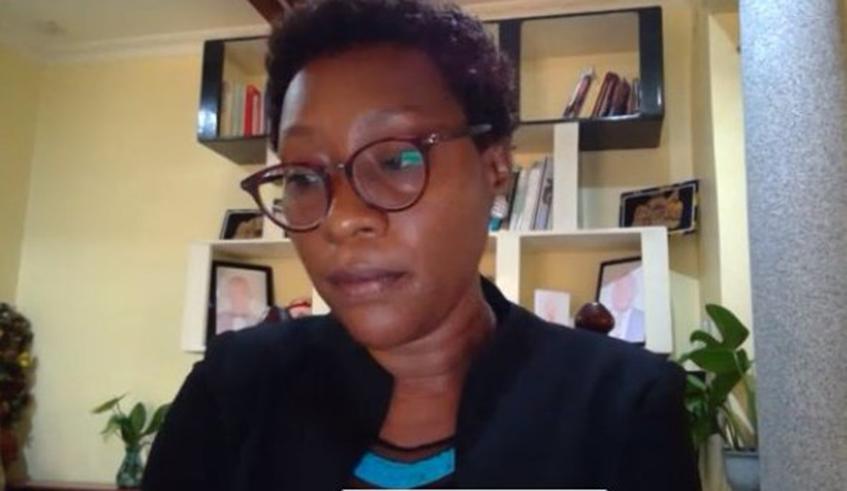Africa-Press – Rwanda. The government and civil society have called for tough measures to tackle domestic violence, an issue they described to be a serious problem for the country.
The potential measures to curb the issue were discussed a senate consultative meeting, organised by the commitee of Social Affairs and Human Rights, which brought together ministries, senators and several non-governmental organisations and national forums on Thursday, January 13.
Presenting to the parliamentarians Jeannette Bayisenge, the Minister of Gender and Family Promotion, said that physical, emotional and sexual domestic violence are all serious issues that are on the government’s agenda of priorities.
She added that domestic violence comes in different forms with the most recurring crimes being defilement, harassment, physical assault, and polygamy, and also murder cases where spouses kill each other or kill their children.
Bayisenge also added that according to a recent survey 65 per cent of women and 39 per cent of men still think that beating their wives is justified when they did something wrong.
“These are all concerning trends that need to be addressed so all Rwandan families can live in peace, and we are working towards solving these issues right from the community level,” she said.
According to the Rwanda Demographic and Health Survey 2019/2020 final report, on domestic violence, it’s reported that 46 per cent of ever-married women and 18 per cent of ever-married men have experienced spousal physical, sexual, or emotional violence, and the prevalence of any spousal violence among ever married women increased from 40 per cent in 2014/2015 to 46 per cent in 2019/2020.
The Rwandan Elders Advisory Forum, represented by their member Boniface Rucagu, called upon change to people who commit domestic violence crimes saying it is “culture”.
“For instance, in pre-colonial time any man who beat his wife had no say in the community, he was an outcast and he had to redeem himself and ask for forgiveness in his family before society accepts him, these should be the cultural values to keep and have them embedded in our societies,” Rucagu said.
On his part Senator Jean Pierre Dusingizemungu, proposed that the fight against domestic violence should be extended to schools, saying that by teaching young children about these issues then they will learn not to engage themselves in these crimes.
Civil society join the fight
Gerardine Umutesi, Deputy Director General of Imbuto Foundation said that it is important to create a supportive environment for the victims so they can freely report and share their experiences.
“We have several policies in place that address these issues, but most importantly we should find ways to have actions that match these policies, for instance, community dialogues, dialogues between parents and children as a way to allow them to teach them and talk about issues without fighting,” she said
Sharing the experience of Musanze district where more than 280 families were able to solve their issues through community dialogues and constant follow-up from the officials, Ninette Umurerwa the Executive Secretary of Haguruka said that these dialogues are crucial and have been yielding good results.
“However this needs a strategic approach where each family’s problem should be put into consideration and also set some good couples as an example for the others,” she added.
Chaste Uwihoreye, Executive Secretary of Rwanda Psychological Society said: “according to statistics last year 576 Rwandans committed suicide, where 28 per cent of them were caused by problems in the family including domestic violence”
“Clearly this is an issue that is affecting the thinking, and the behaviours of Rwandans which takes a toll on their mental health,” Uwihoreye added that counselling to families, victims and communities is key to addressing the issue.
“In most cases when people who come from these families that have been dealing with domestic problems tend to form broken families themselves, we should find ways to help these people who have been affected so they can heal and not repeat the history of their families,” he added.
Other measures adopted by the Senate to tackle the issue include; improving existing policies on the issue, counseling before marriage, performing contracts on tackling the issue at cell, sector level, and family level, constant community and family dialogues, among others.
For More News And Analysis About Rwanda Follow Africa-Press






